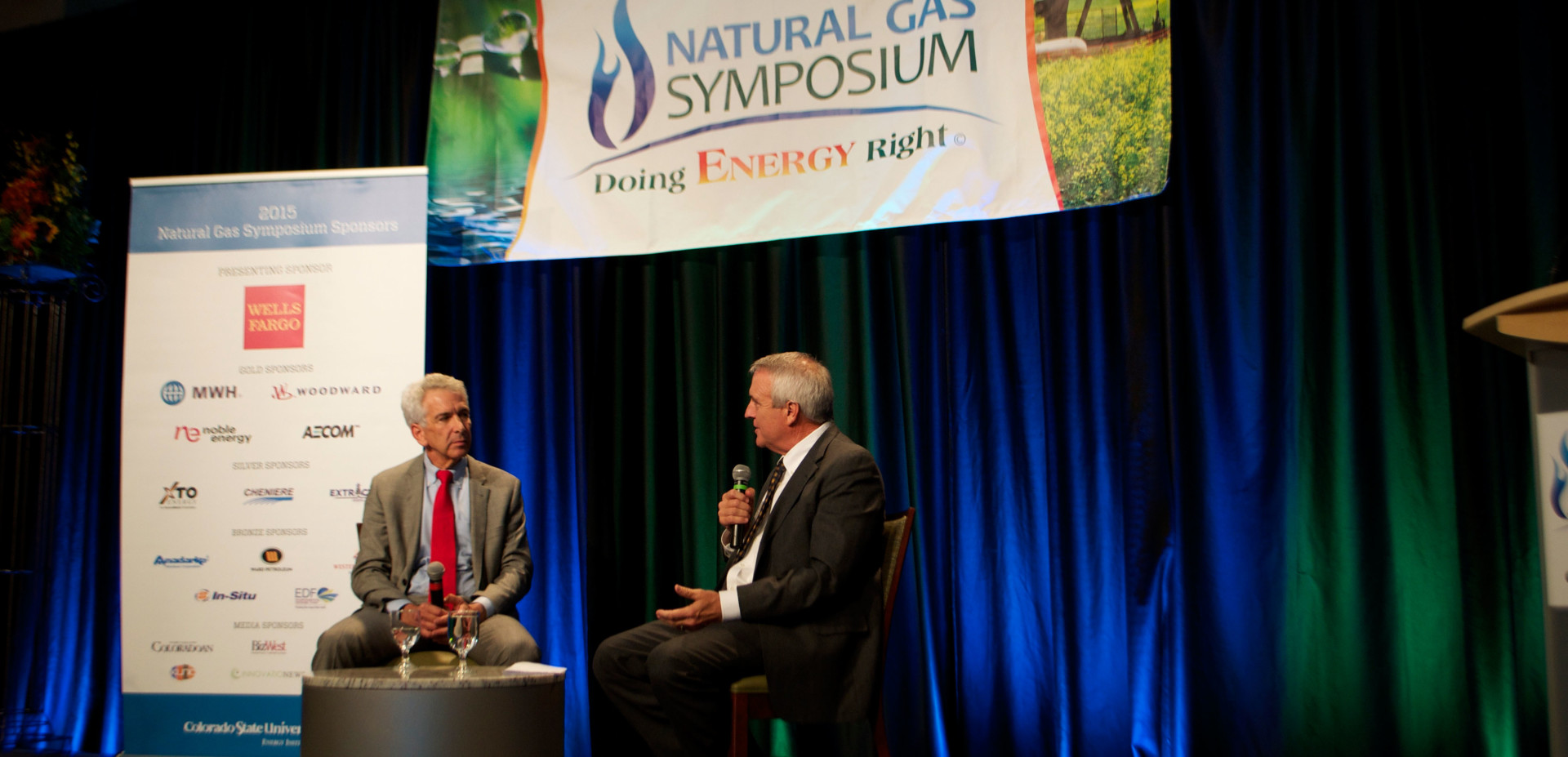
Following his keynote, EDF President Fred Krupp participated in a Q and A moderated by Bill Ritter, director of the Center for the New Energy Economy.
Photo by Mary Willson
With the help of researchers from Colorado State University, a spotlight has been turned on a vexing problem: How to curb fugitive emissions of methane, a potent greenhouse gas, from the natural gas supply chain. The problem lands in the purview of both science and industry, and it’s going to take innovation, collaboration and leadership to solve it.
That was the message from Environmental Defense Fund President Fred Krupp, keynote speaker at the fifth annual Colorado State University Natural Gas Symposium, held Oct. 27-28 on campus.
Headlined by Krupp, and featuring more than 40 speakers covering research and best practices in every facet of the oil and gas industry, the symposium drew close to 900 participants to the Lory Student Center. Many more accessed a public live stream of the two-day event.
Methane emissions studies
Back in 2012, the EDF launched a series of 16 studies, two of which were led by CSU scientists, to identify and quantify what Krupp called the “leaky plumbing” of the natural gas industry –fugitive methane emissions, both known and unaccounted for. These leaks are found from wellhead to gas line, and everywhere in between.
With cooperation from more than 100 academic institutions, think tanks and energy companies, EDF, the public, and regulators are now armed with something powerful: the facts. Krupp said that, according to the studies, in some places emissions were lower than or in line with what was already known by the Environmental Protection Agency. But some of the studies, including CSU’s, found about 8 times higher emissions than previous estimates in certain segments of the natural gas supply chain.
Call to action
Krupp put out a call to action for both science and industry to continue innovating solutions, despite the costs. Krupp called fixing the methane leaks a “bargain” compared with the cost to industry of continuing to lose valuable product, as well as the climate- and health-related consequences of allowing the leaks to continue. The EDF-sponsored methane studies were meant to be useful to industry by helping them recapture wasteful emissions, and “put them to work,” Krupp said.
The symposium this year focused on just this point: collaboration among industry, science and community stakeholders that can net positive results on all sides.
Variety of session topics
Sessions included such topics as air and water quality; resolving conflicts between state and federal policies; workplace and public safety; and solving the state vs. local control puzzles. An all-CSU panel session included methane emissions study leaders Anthony Marchese, professor of mechanical engineering, and Dan Zimmerle, director of the CSU Electric Power Systems Laboratory. Other panelists highlighted CSU research-driven solutions to water, air and plant diversity issues that intersect with the natural gas industry.
The Natural Gas Symposium was sponsored by the Center for the New Energy Economy and the Energy Institute at CSU.
All sessions will be accessible online by Nov. 15 via the live streaming archive at naturalgas.colostate.edu.